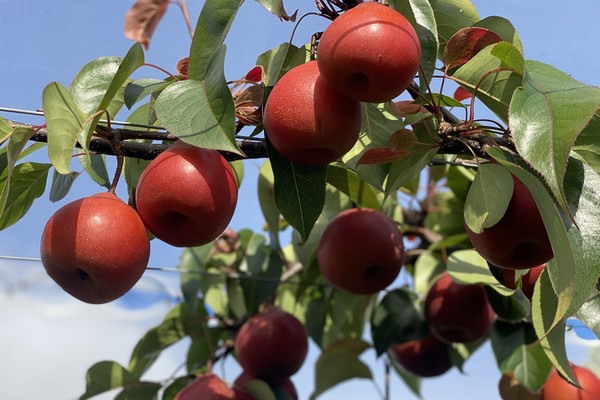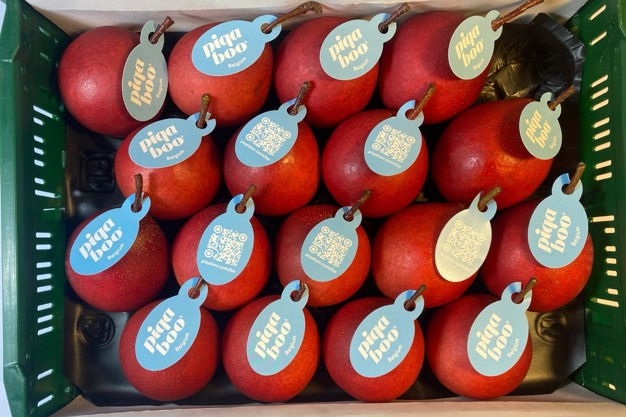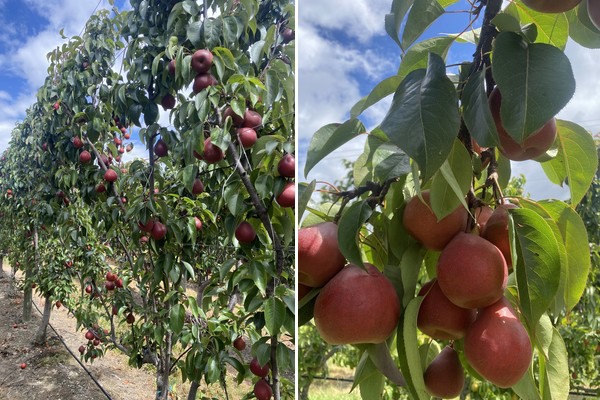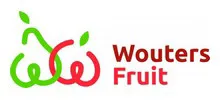Fruithandel Wouters harvested its first full crop of the PiqaBoo® in December. This red pear, described by owner Kris Wouters as a 'new fruit variety', is one of this Belgian family business's showpieces. "We deliberately chose to sell most of the production on the European market, and it went very well," he begins.

PiqaBoo is originally a New Zealand variety but is gradually reaching markets like Europe. That was Fruithandel Wouters' idea, too. "We know the variety is very popular in China and Vietnam, but we focused on marketing in the European market. That's mostly because we don't want to depend solely on sales to Asia. We know it sells well there, but we wanted to see how European consumers would receive this 'unknown' variety. We collaborated with Edeka in Germany and Delhaize in Belgium, and the feedback was exclusively positive."
Starting sales in December was also intentional. "Our volume wasn't so large that we could continue for months. December is the perfect time for a test like this. The weather helps, as people are more inclined to eat pears on dark, rainy days. Plus, shoppers are more willing to spend a little extra on special products during the festive season. They seemed happy enough to pay premium prices without any issues," says Kris.
"Since it was a good season, we want to look at the next step. Do these pears sell as easily in, say, springtime or October? What happens if you work with it over a longer period? We learn something new every year, and next year, we'll expand production again. It's great that it was well received; you never know how things will turn out when you start."

Smaller sizes for the Middle East
It was quite exciting, Kris admits. The PiqaBoo, he says, is not a pear known in Europe. "We don't want to market it as such. People wanted a variety that was more like an apple. A pear that doesn't need to be perfectly ripe and remains crispy for a long time. Its color took some getting used to for many consumers when it comes to pears. We wanted to make that distinction clear in stores so shoppers found it with the exotics. Between the mangoes, avocados, and other specialties available in December instead of among the apples and pears. Then consumers know they're buying something unique, and that seemed to work," Kris explains.
With the larger sizes, the main focus was on the European market, but they also experimented with the medium sizes in the Middle East. "Edeka and Delhaize got the 65+ sizes, but with 60-65, we looked at reaching other markets. Again, we knew we could go to Vietnam, but we decided on Dubai. That, too, turned out very well. This year, it was with a pallet of air freight, making it quite expensive to market there. However, that could, of course, grow to containers in the future. It's good to know we don't have to worry about not selling should we have a year of smaller sizes."

Collaboration
Although PiqaBoo was originally cultivated in New Zealand, the trader does not necessarily see the country as a competitor. "They have more production, but because the seasons differ, we actually complement each other. I recently visited New Zealand to see how their cultivation and trade are going. We have contacts, and it was fascinating to see their challenges. Those are very different from ours, and I was pleasantly surprised," says Wouters.
"New Zealand is traditionally more an apple country, with minimal focus on pears. But they're going big with PiqaBoo. And despite suggestions that they face many challenges, the pears were of good quality. The biggest problem is they don't have enough cold hours in the winter, hindering the fruits' growth. Much research is being done, though, and it seems they've completely mastered the cultivation."
That's also why Kris is looking beyond his own cultivation at a collaboration. "New Zealand focuses more on Asia, whereas we focus more on Europe. Our seasons are, thus, complementary. But you shouldn't put all your eggs in one basket. So, we're also looking at their trade towards Asia and the prices they get. And they're looking at Europe to see how the pears are positioned in that market. It will soon become clear how much collaboration there will be," he concludes.
For more information:
Kris Wouters
Fruithandel Wouters
21 Kasteellaan
3454 Rummen, Belgium
Tel.: +32 (0) 475 283 696
[email protected]
www.woutersfruit.be
